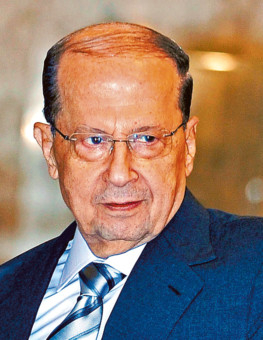
Beirut: By the Tuesday midnight deadline, 514 Lebanese citizens, including 35 women, had formally submitted their candidacies for the next parliamentary elections, tentatively scheduled for November 16, 2014, to be held according to the controversial 1960 Law.
Minister of the Interior, Nouhad Machnouk, tasked security agencies to prepare a report to determine whether such a vote was feasible under current security conditions. Ironically, he delivered his news conference while the country was plunged in an electricity blackout for the second day in a row, which meant that only those who could afford subscriptions to neighbourhood power-generator services heard him.
Those who had such services tuned in to OTV to watch the Free Patriotic Movement (FPM) leader Michel Aoun reveal that a political “deal” had been reached among various parties, to extend the parliament’s mandate, which begged the question: why go through the theatrical motions to submit candidacies?
Without missing a beat, Aoun explained the contradiction in purely Machiavellian terms: “My nomination [for parliament] has been submitted and all options are on the table. If today’s statements turn out to be true, then there will be an extension of the parliament’s term as we were expecting, but we have submitted our nominations in order not to leave anything to chance.”
Inasmuch as the FPM publicly derided the very idea of an extension, and went so far as to submit a challenge before the republic’s Constitutional Council against the first 17-month extension that was inked on May 31, 2013, Aoun’s assertion that there was “a majority that supports the extension but we support holding the elections,” reflected confusion.
On Wednesday, Aoun met with the Progressive Socialist Party leader Walid Jumblatt for the second time in as many weeks, to discuss urgent matters that confronted the state. Both men affirmed that they covered several topics save for the moribund presidential elections that, for all practical purposes, were postponed sine die. Aoun preferred that the president be directly elected by the people, and one of his deputies went so far as to propose a constitutional amendment to that effect, whereas Jumblatt held on to the country’s existing system of government.
Judging by various blogs that filled hundreds of online pages, Lebanese citizens were far more interested as to whether there was a single politician or public official in the country who would address current security, as well as socio-economic conditions. Importantly, either Aoun nor Jumblatt uttered a word about the 23 kidnapped soldiers and policemen in Arsal. Even less was said as to why authorities had failed to address the electricity scandal that ensured darkness after spending more than $30 billion (Dh110 billion) on electricity since 1990. Wary citizens and residents alike wondered why everyone had neglected their responsibilities.












